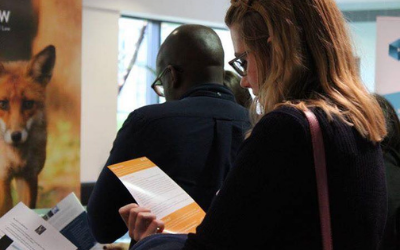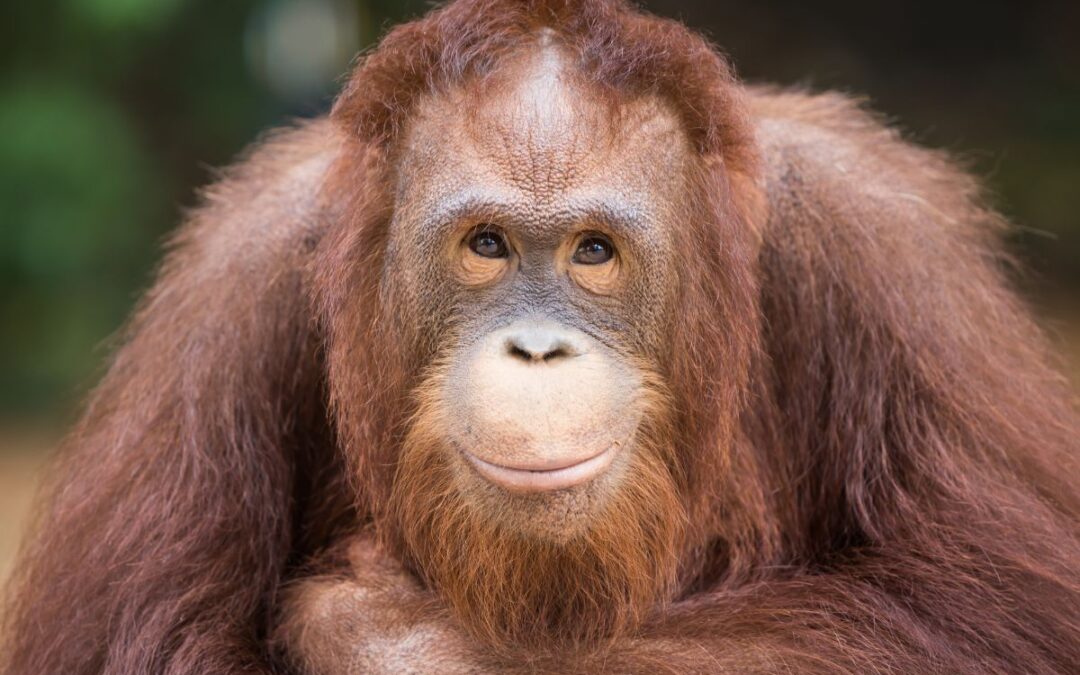By Dr. Joe Wills, Lecturer in Law, University of Leicester
Background
The name ‘orangutan’ is derived from the Malay words ‘orang’ (person) and ‘hutan’ (forest), and thus means ‘person of the forest’. Alongside humans, they belong to the great ape genus and share 97% of their DNA with us.
Orangutans are not only sentient, social, and emotionally complex, but also highly intelligent creatures who have demonstrated the ability for self-awareness, tool-use, complex communication, and the ability to discuss the past. They are also deeply empathetic: they find each other’s yawns and laughs infectious, and they have been documented trying to save others in distress. Some even thoroughly enjoy a magic trick:
But are they ‘persons’ in law? This question was recently addressed by the Chilean Supreme Court.
The case concerned a male Bornean orangutan called “Sandai” who was being kept in a solitary enclosure at the Buin Zoo. An animal rights organisation called Fundación Justicia Interespecie (‘Interspecies Justice Foundation’) argued that Sandai’s living conditions were detrimental to his physical and mental wellbeing and that they violated his right to liberty. They filed an amparo (habeas corpus) petition to get Sandai relocated to a primate sanctuary.
Habeas corpus is traditionally understood as only available to humans, but as the Nonhuman Rights Project has been doing in the USA, the Interspecies Justice Foundation urged the court to apply it for a ‘non-human person’ on account of his social, emotional, and cognitive complexity. The petition was supported by 21 international experts in the fields of law, philosophy, primatology, and biology.
The Ruling
On August 10, the Supreme Court rejected the appeal. The rights in the Chilean constitution apply only to ‘persons’ and, according to the dictionary of the Royal Spanish Academy, a person is ‘every individual of the human species’. As orangutans are not human, they don’t have such rights.
Despite not recognising Sandai’s personhood, the Supreme Court did order the Livestock Service to adopt all appropriate measures to ensure the Buin Zoo complies with the relevant legal regulations so that Sandai’s captivity: (a) is appropriate for his species; (b) does not cause his suffering; (c) does not lead to his mistreatment; (d) does not undermine his normal development; and (e) does not lead to a deterioration of his health.
Comment
It is hoped that the conditions of Sandai’s confinement will truly be improved following this ruling, though it is doubtful that the zoo has the capacity to truly ensure that the requirements of his physical and mental wellbeing can be met.
The Supreme Court’s decision regarding Sandai’s personhood is distinctly unimpressive. The appeal to the Royal Spanish Academy dictionary is self-defeating, because it contains not one but ten definitions of ‘person’ including ‘Sujeto de derecho’ (‘subject of law’).
More fundamentally, this sort of textualism concerns itself with technicality rather than the values and principles underlying the law. In a New York State case filed by the Nonhuman Rights Project, Judge Fahey criticised appeals to dictionary definitions of ‘person’ to determine whether chimpanzees could have habeas corpus rights:
“The better approach in my view is to ask not whether a chimpanzee fits the definition of a person…but instead whether he or she has the right to liberty protected by habeas corpus. That question, one of precise moral and legal status, is the one that matters here. Moreover, the answer to that question will depend on our assessment of the intrinsic nature of chimpanzees as a species.”
In Sandai’s case, such an approach would have required the Supreme Court to engage with the Interspecies Justice Foundation’s amicus curiae briefs concerning the capacities, desires, needs, and moral status of orangutans.
Such an approach is not unknown is South America. In neighbouring Argentina, two courts have recognised Sandra the orangutan and Cecilia the chimpanzee as ‘nonhuman persons’ and ‘subjects of rights’. Both now reside in primate sanctuaries in Florida and Brazil (though Sandra’s case involved several twists and turns).
Though Sandai’s case is a setback for animal rights in Chile, change may well be on the horizon. In 2020, Chileans voted overwhelmingly to scrap the country’s Constitution, which has its roots in the dictatorship of General Augusto Pinochet. This September they will vote on a new constitution, one with social and environmental justice at its heart. In particular, article 4 of the draft constitution recognises ‘the rights of nature’. And earlier this year, the Constitutional Court in Ecuador recognised that a similar rights of nature provision in the Ecuadorian constitution gave rights to individual wild animals, including a right to ‘freedom of movement’. This may offer a legal pathway to freedom for Sandai and other captive wild animals.
To end, here’s a video of Sandra the orangutan enjoying her 34th birthday at a Florida sanctuary.







